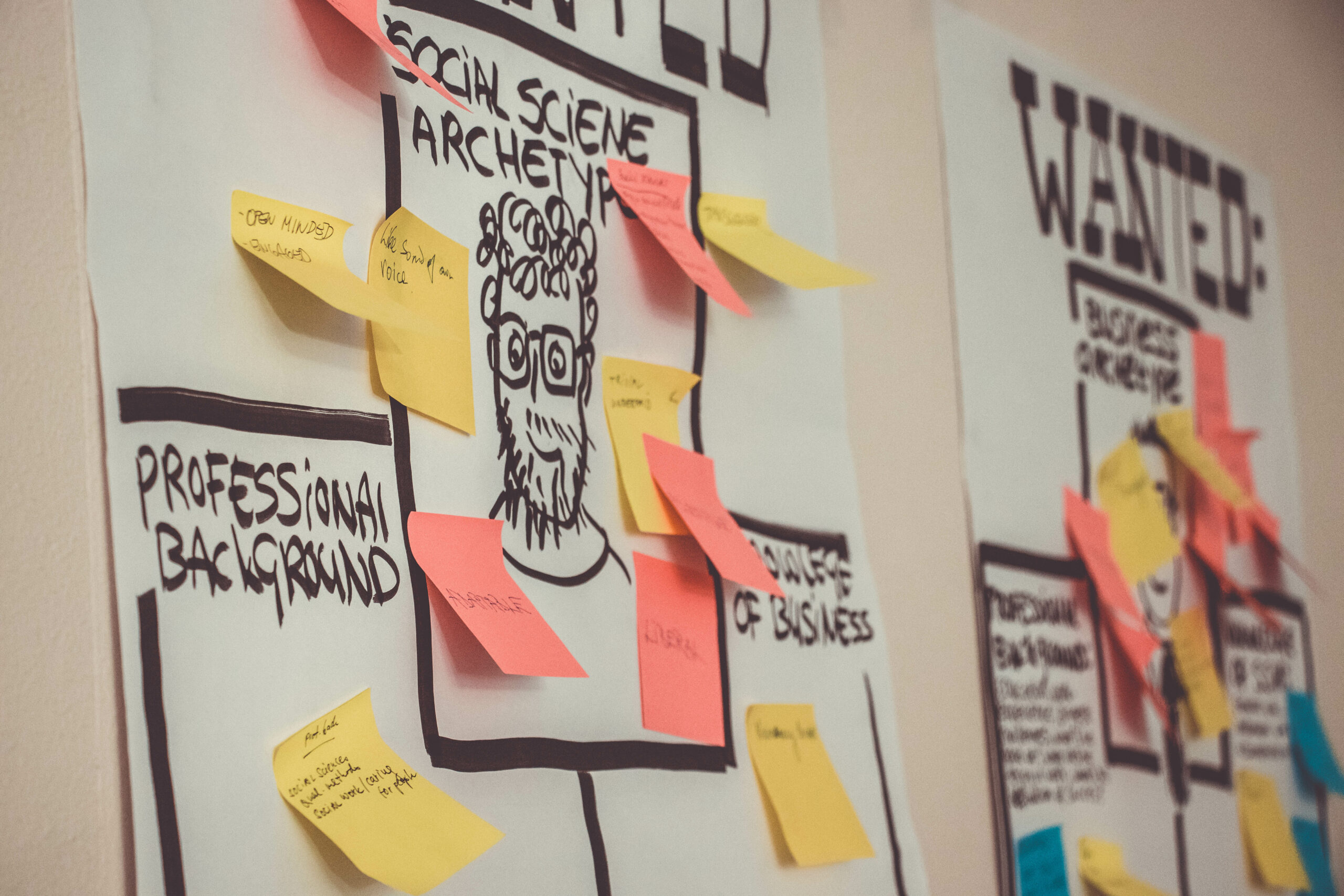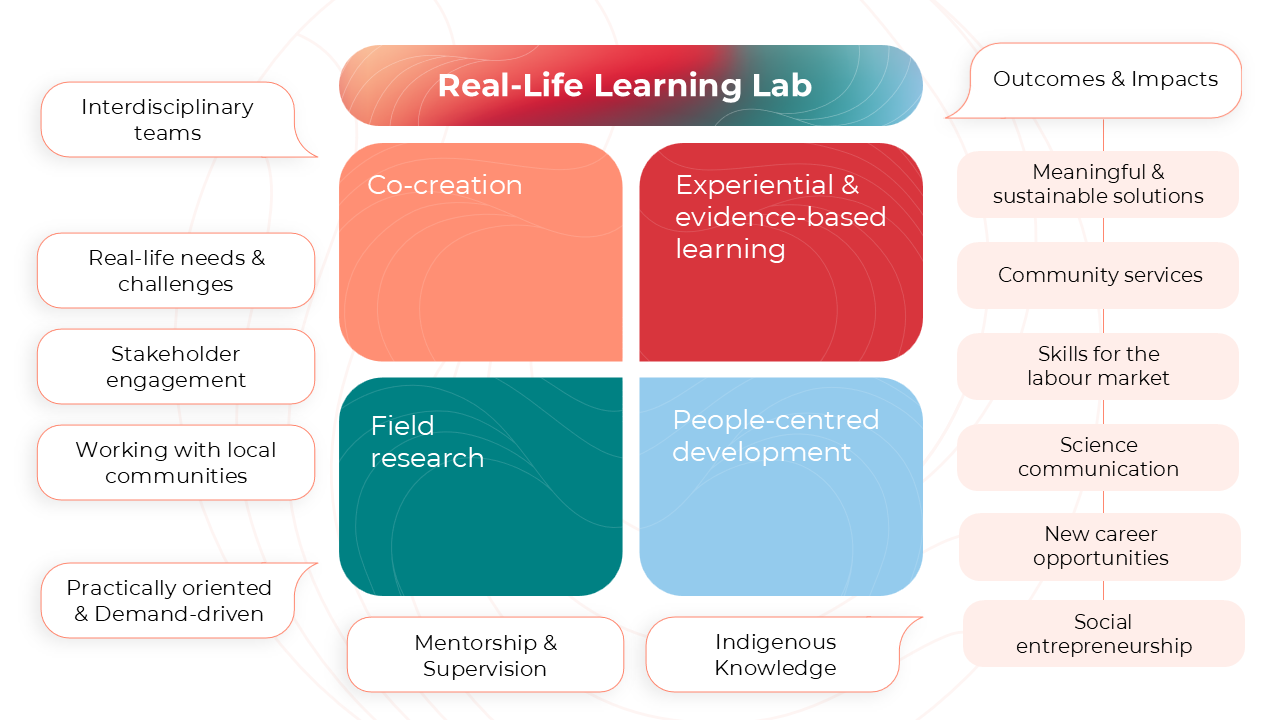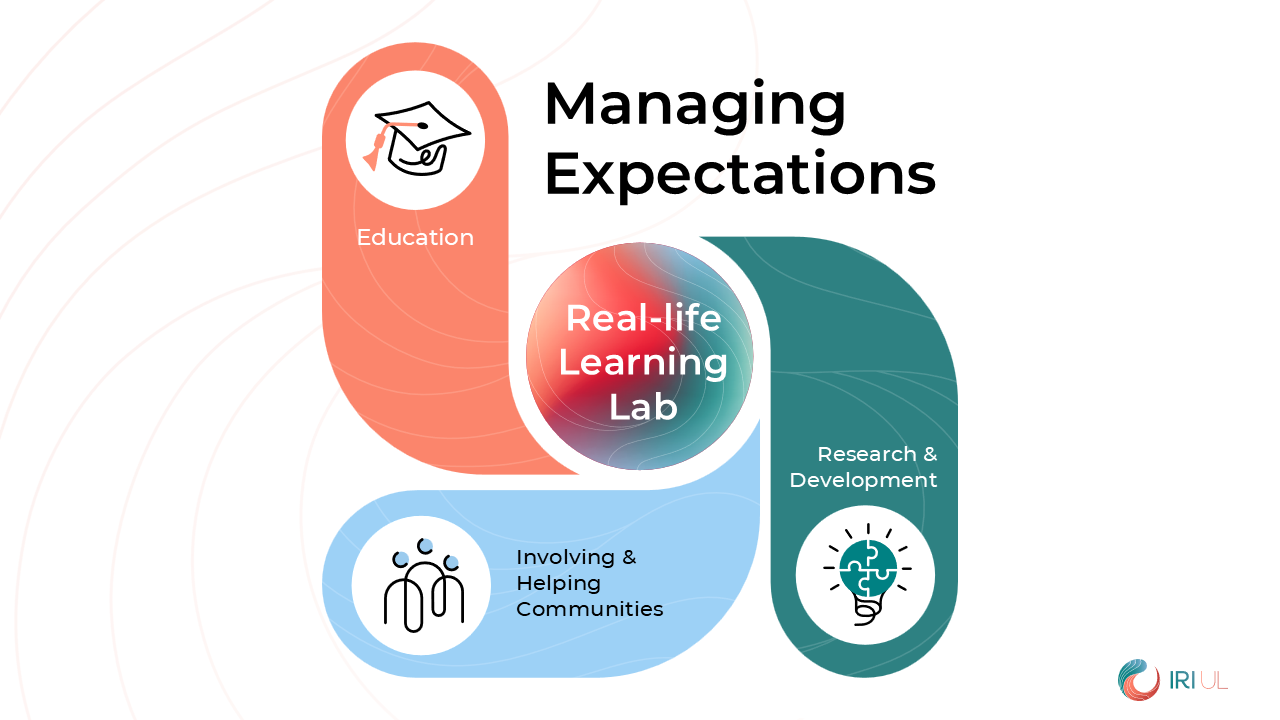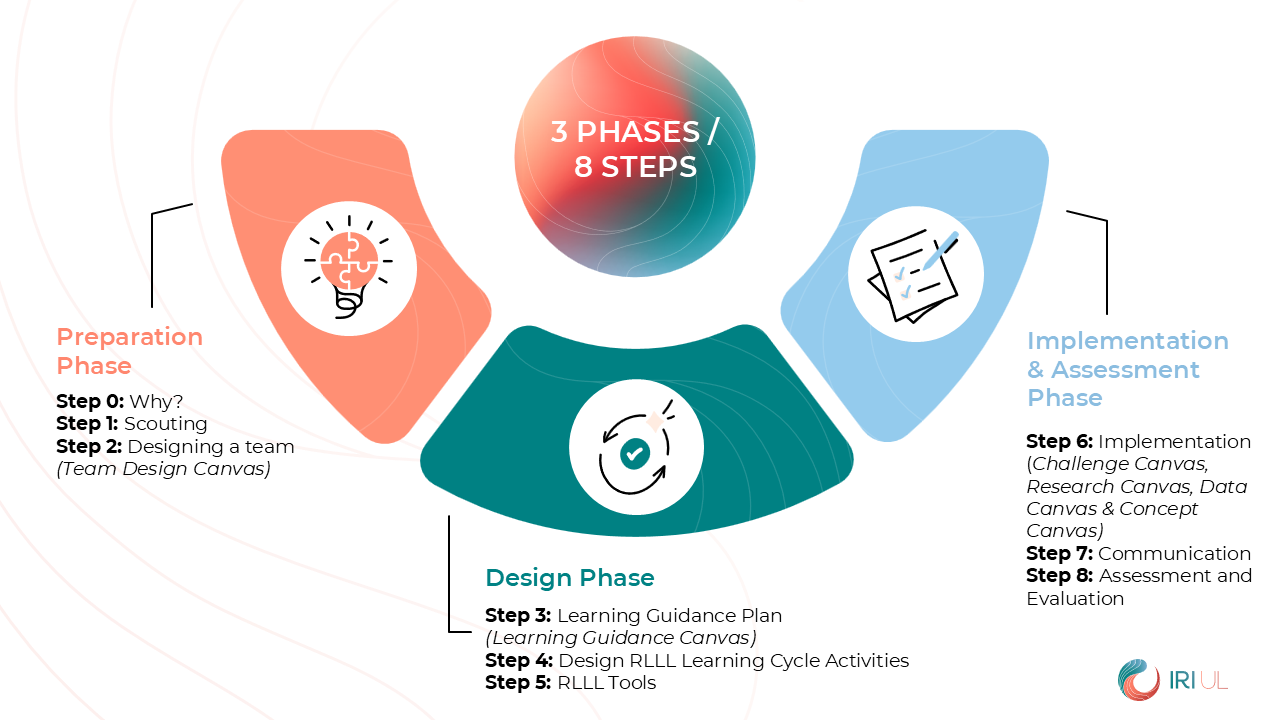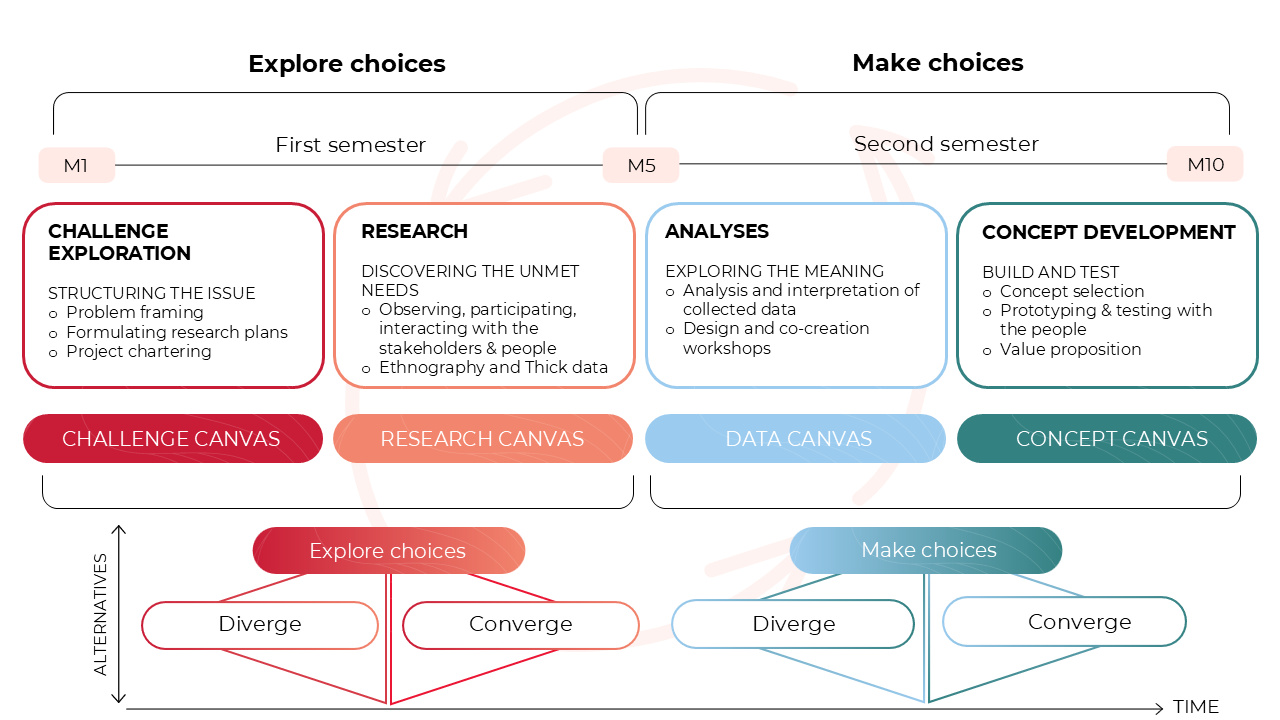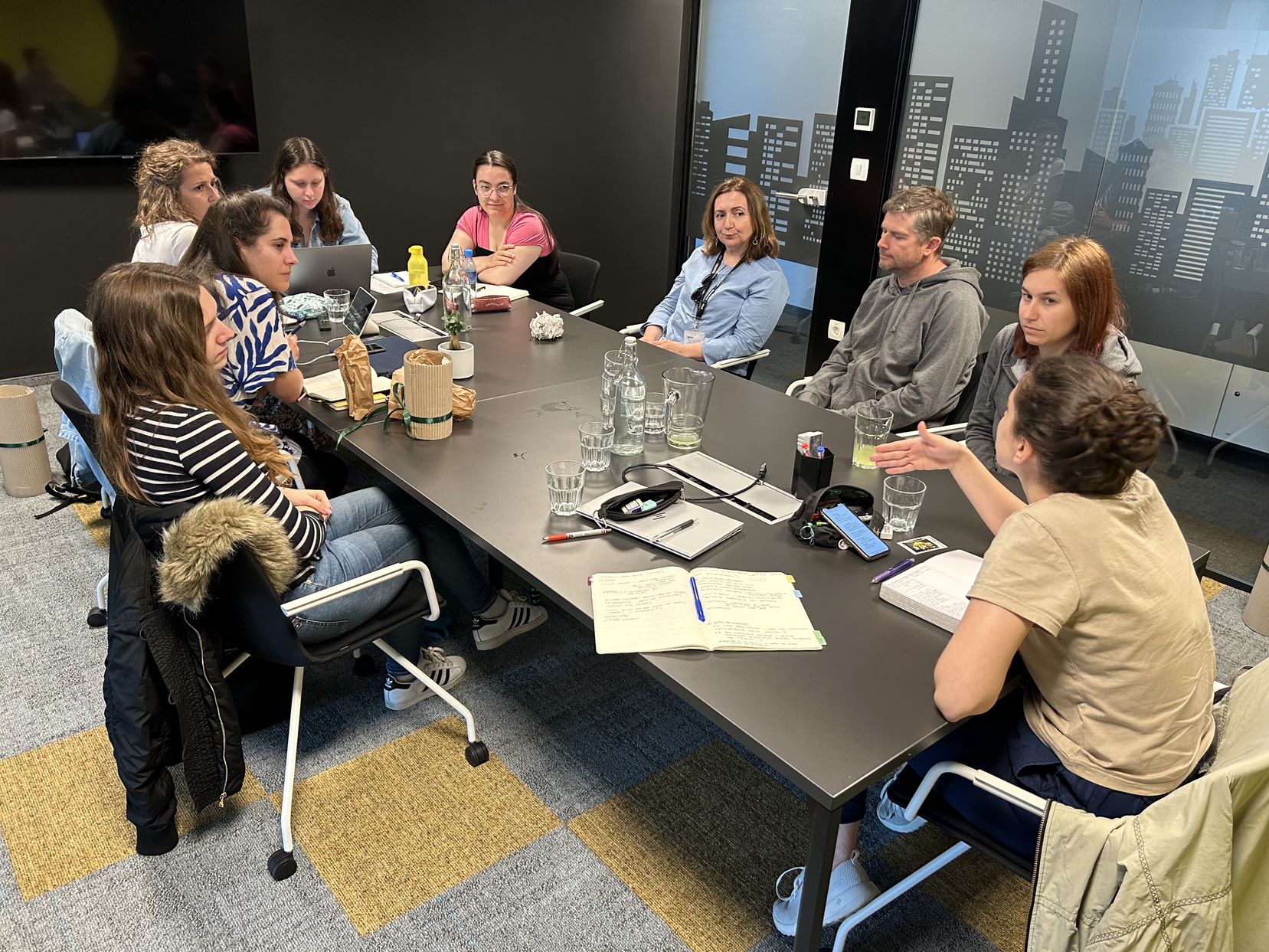The Real-Life Learning Lab is based on interdisciplinary groups of students, teachers, researchers, and non-academic representatives jointly working on projects that address real-life sustainability and societal challenges. Problem-based learning, teaching, and researching is combined with practical work experiences and exposed to the needs of communities, industries, and society. It enhances the development of students’ practical skills and increases their employment and career prospects. The activities and projects’ results serve as an inspiration for new solutions and inventions or lead to the improvement of existing solutions, products, or services. In addition, the process supports companies when identifying and recruiting young talents.
Students get acquainted with the basic principles of project work; people-centred development; interdisciplinary, cross-sectoral, and multigenerational co-creation; innovation processes and entrepreneurship. They develop teamwork, communication, creativity, and project management skills together with ethics and environmental responsibility, overall facilitating their transition into the world of work.
We design, lead and supervise interdisciplinary students’ projects; together with students and other project members we identify company challenges, develop research questions and prepare research plan; we organize, implement, and supervise field research work; analyse results; design insights and development recommendations.
Practices
Researching Sustainable Urban Mobility in Ljubljana
In three different project groups, the students from the Department of ethnology and cultural anthropology of the Faculty of arts, University of Ljubljana, researched urban mobility together with habits and daily practices of Ljubljana citizens and daily commuters. They developed different solutions and project proposals that address the identified challenges. The activities have been implemented in the context of the Active8-Planet and Urban GoodCamp projects.
New Generation of Energy Management Tools in Public Buildings
Interdisciplinary students’ projects researched, how people manage their energy consumption in public buildings and tested different analytical tools for optimizing the building systems’ operation. The projects addressed the energy efficiency of the University of Ljubljana buildings and developed a simulation model to reduce buildings’ operation costs.
The RUARDI Airport in Zagorje ob Savi
Students from different faculties of the University of Ljubljana researched impacts of the air traffic and aviation industry on environment, local communities, spatial organization, and entrepreneurship.
Green Faculty
In this students’ project, the interdisciplinary group researched how to influence the energy consumption habits in public buildings and how people identify themselves with such working and living environments compared to private building.
Knowledge Alliance for Energy Refurbishment and Management of Public Buildings
Interdisciplinary students’ teams have developed solutions for holistic refurbishment of the main building of the University of Ljubljana in the areas of: (1) alternative business models (i.e., energy services, public-private partnerships, legislative, regulatory framework, subvention); technical & technological solutions (i.e., HVAC, safety systems, locally available renewable sources etc.); user behaviour and rational use of energy; systems for building automation (i.e. energy management systems, CNS, advanced functionalities); construction & architectural aspects (i.e. statics, fire safety, protecting cultural heritage, advanced solutions).
